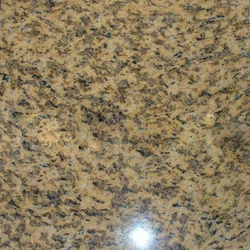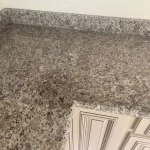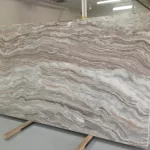Granite countertops are a well-liked option for kitchens because of its attractive appearance, long-lasting nature, and potential resistance to the presence of bacteria and organisms. It is necessary to do regular cleaning and maintenance on your granite countertops in order to keep them looking their best and to ensure that they will last for a long time. When it comes to effectively cleaning and maintaining granite countertops, this article offers a comprehensive guidance that covers all the bases. It discusses daily cleaning practices, cleaning materials that are recommended, strategies for removing stains, regular sealing, and preventative measures.
Routines for Cleaning Every Day
When it comes to preserving the cleanliness and look of granite countertops, a daily cleaning program is absolutely necessary. To get rid of any spills or loose debris, begin by cleaning the surface with a sponge or a soft cloth that has been dampened with water. Because they have the potential to cause harm to the sealant or the surface of the granite, abrasive products and aggressive cleaners should be avoided. The next step is to make use of a non-abrasive, pH-neutral cleanser that has been developed specifically for stone surfaces. The countertop should be cleaned by spraying the cleanser onto it and then wiping it down with a gentle cloth or sponge. Last but not least, in order to avoid water stains or streaks, the countertop should be thoroughly dried after being rinsed with water.
Products for Cleaning That Are Recommended
When picking cleaning products for granite countertops, it is essential to select options that are pH-neutral and do not include any abrasive characteristics. It is possible for the surface of the granite to become dull and lose its natural sheen if it is exposed to harsh chemicals, acidic cleaners, or abrasive things. You should look for cleaners that are made specifically for stone surfaces because these cleaners are formulated to clean stone surfaces properly without causing any damage. An alternative method of cleaning that can be utilized on a daily basis is a combination of gentle dish soap and warm water. Avoid using cleansers that contain ammonia, vinegar, or lemon juice because these substances have the potential to etch or dull the surface of the granite.
The Methods Used to Remove Stains
In spite of the fact that it is resistant to stains, granite countertops can still be affected by some chemicals. To successfully remove stains, it is essential to take prompt action. The stain should be blotted with a clean cloth or paper towel in order to absorb as much of the substance as possible. Rubbing the stain might cause it to expand and penetrate further into the stone, so you should avoid doing that. For stains that are oil-based, such as grease or cooking oil, a poultice that is made of baking soda and water can be highly effective. The poultice should be applied to the stain, then covered with plastic wrap and allowed to sit for the entire night. Finally, remove the poultice in a gentle manner and wash the affected area with water. When dealing with stains that are water-based, such as those caused by coffee or wine, it is possible to use a mixture of hydrogen peroxide and a few drops of ammonia. After applying the solution to the stain, wait a few minutes for it to take effect, and then thoroughly rinse the area.
Sealing on a Regular Basis
It is absolutely necessary to seal granite countertops correctly in order to preserve their structural integrity. The sealer helps to preserve granite from stains and moisture, which is important because granite is a porous material. When the countertops are installed, it is recommended that they be sealed by a professional, and it is also recommended that they be sealed periodically after installation, as directed by the manufacturer or a specialist. Carry out a straightforward water test in order to ascertain whether or not your countertops require resealing. The countertop should be treated with a few drops of water, and the behavior of the water should be observed. It is possible that the sealant is still intact if the water does not discolor the granite and instead beads up. In the event that the water penetrates the granite and causes it to get darker, it is essential to reseal the countertops.
Methods of Preventive Measures
In order to preserve the elegance and durability of granite countertops, prevention is the most important factor. In order to prevent knives from coming into direct touch with the granite surface, you should make use of cutting boards or chopping blocks. It is important to protect hot pans and pots from heat damage by placing them on trivets or heat-resistant cushions. Immediately clean up any spills to avoid leaving a stain or etching on the surface. Scrubbing pads, scrub brushes, and abrasive cleaners should be avoided because they have the potential to scratch the surface. If you want to avoid water rings or moisture absorption, you might want to think about placing coasters or mats below your glasses and containers. Through the use of these preventative methods, you will be able to reduce the likelihood of damage and maintain the beautiful appearance of your granite countertops.
Both the beauty and the durability of granite countertops can be preserved via the application of appropriate cleaning and maintenance practices. A daily cleaning regimen that makes use of cleaners that are pH-neutral and non-abrasive is beneficial in maintaining a surface that is clean and clear of debris. Stains can be prevented from causing permanent harm if they are treated promptly and with the appropriate techniques. It is recommended by experts that the granite be sealed on a regular basis in order to ensure that it continues to be protected. Through the utilization of preventative measures, such as the utilization of cutting boards, trivets, and coasters, it is possible to reduce the likelihood of scratches, heat damage, and water stains. You will be able to take pleasure in the granite countertops’ aesthetic appeal and practicality for many years to come if you adhere to these suggestions, which will assist you in maintaining the cleanliness, appearance, and lifespan of your granite worktops.










